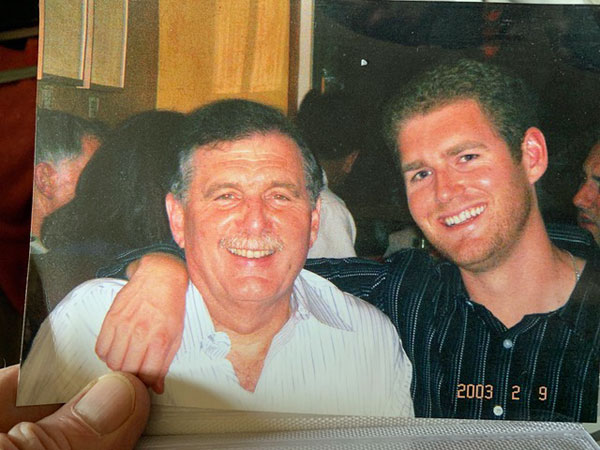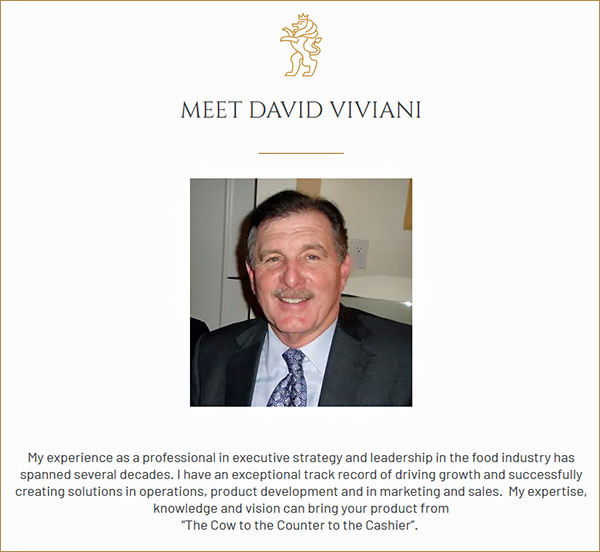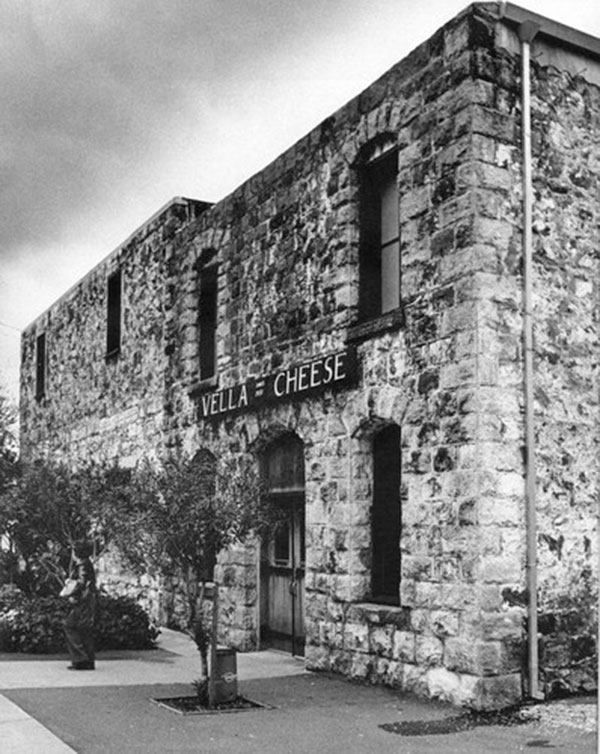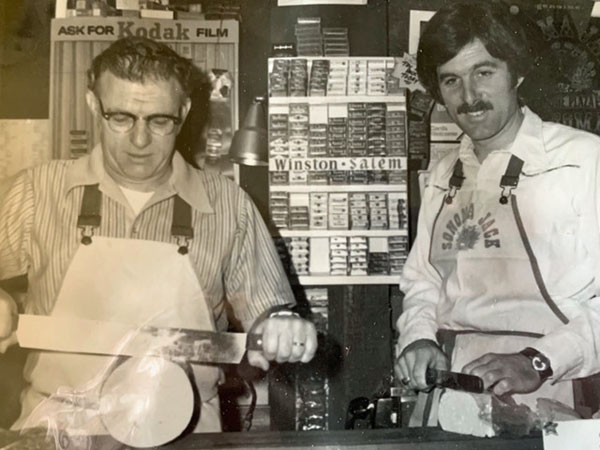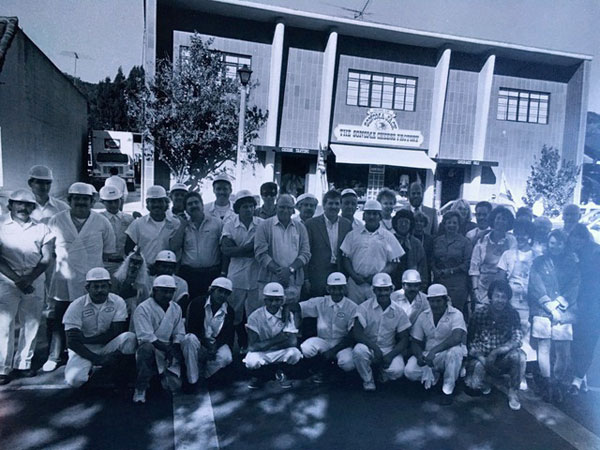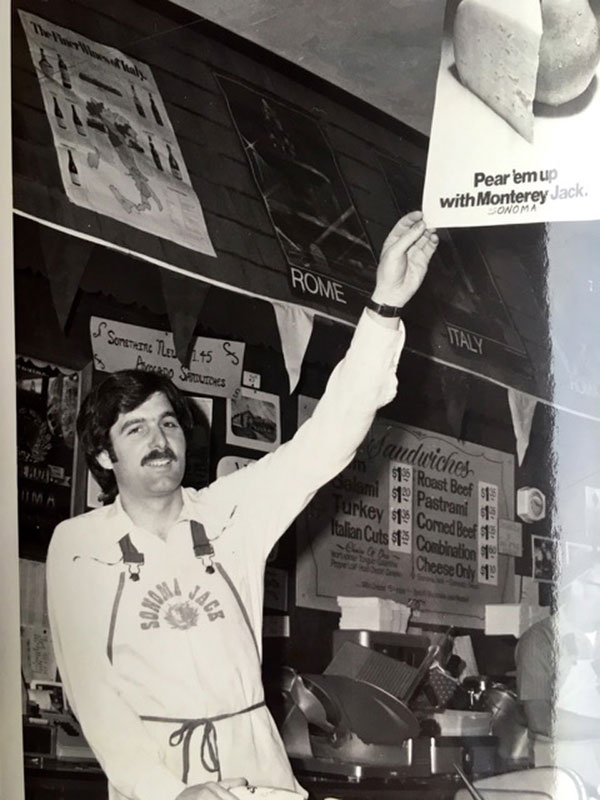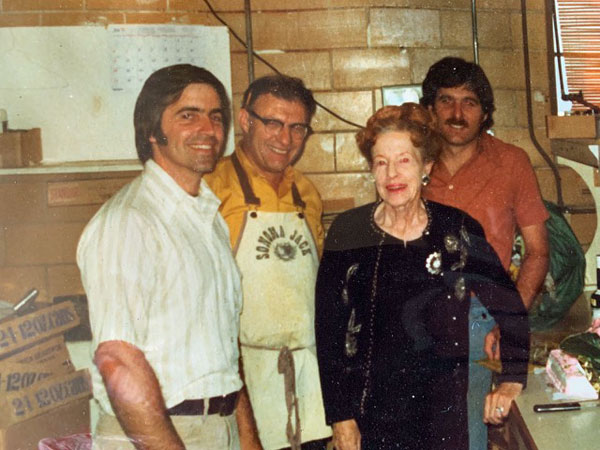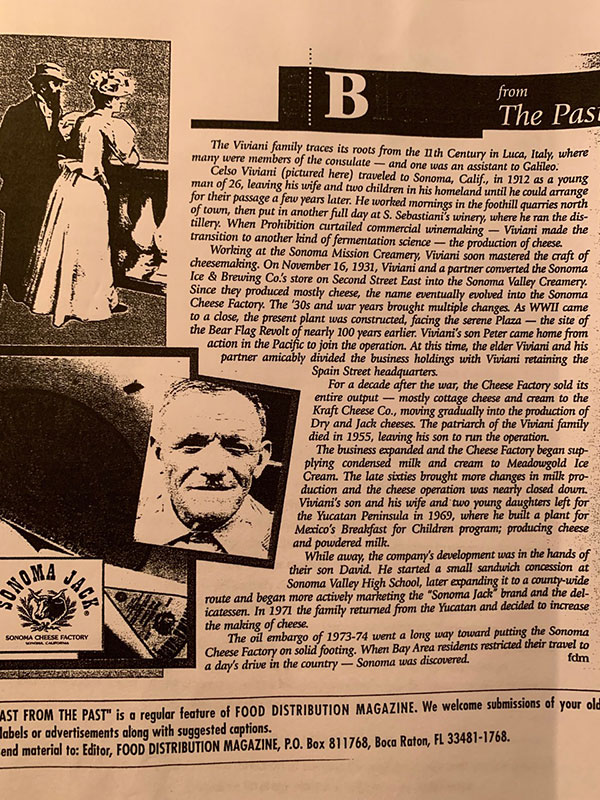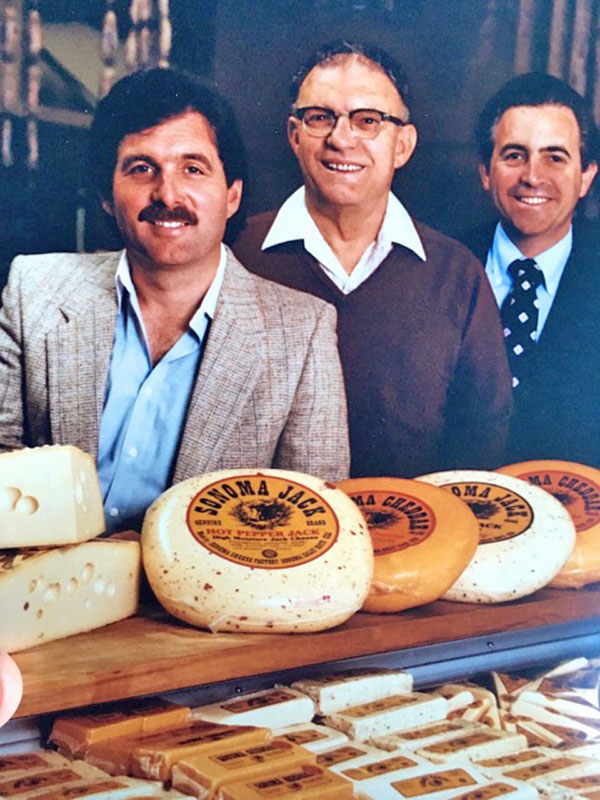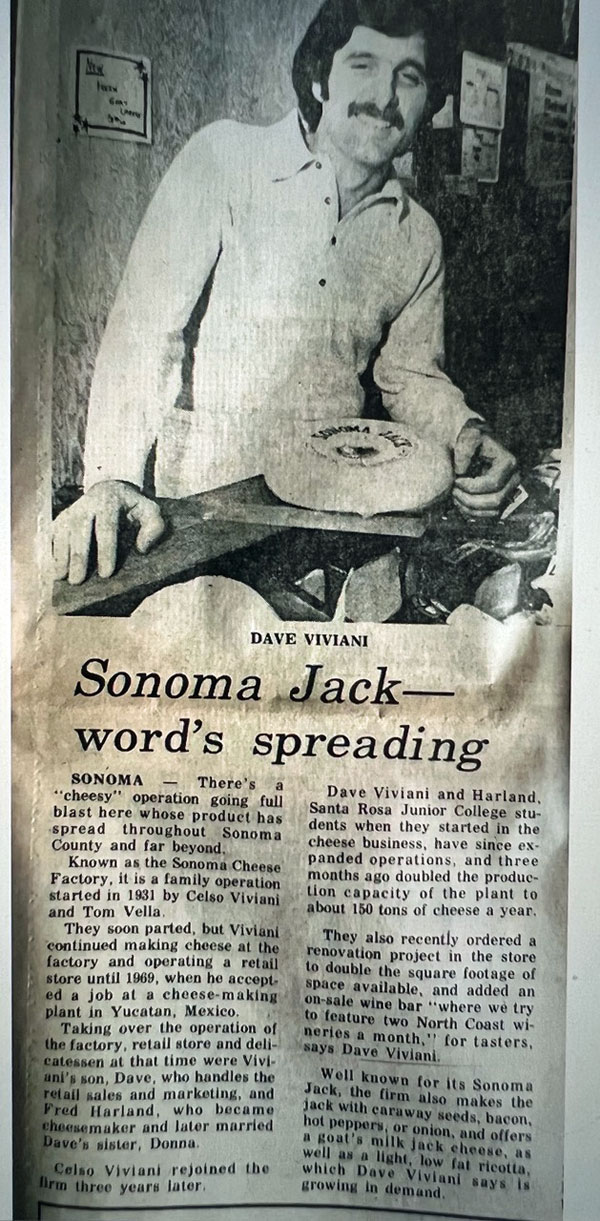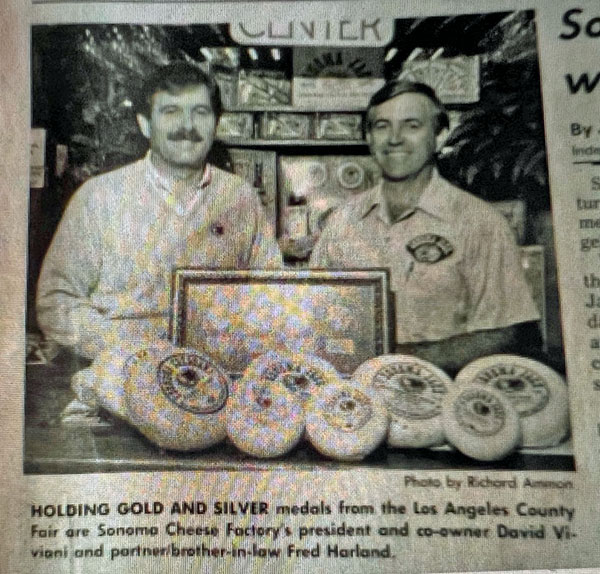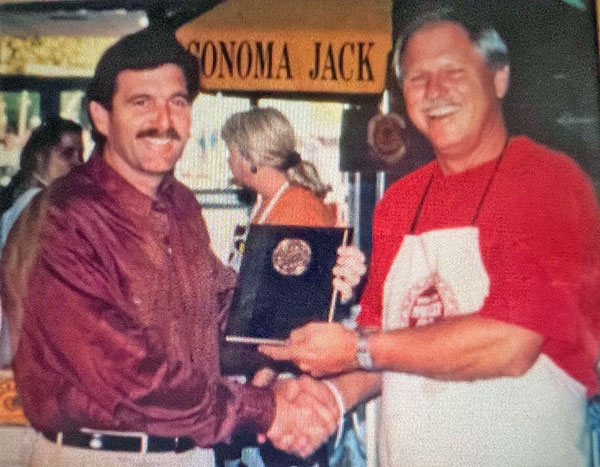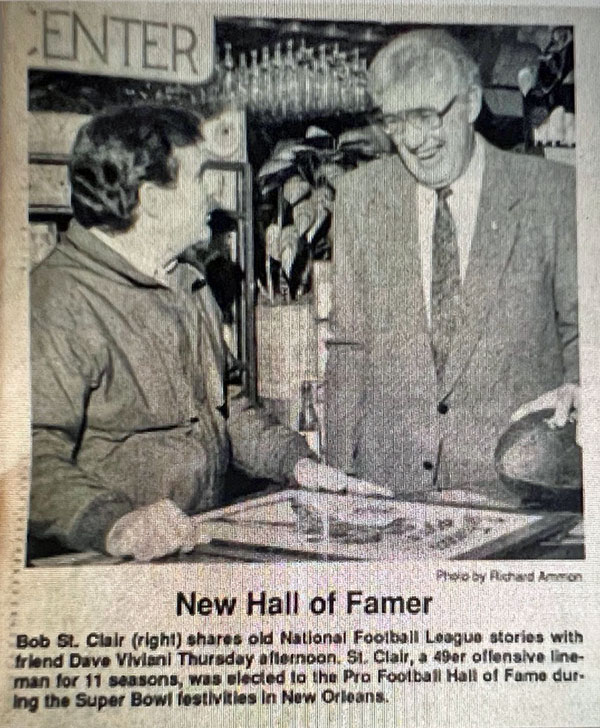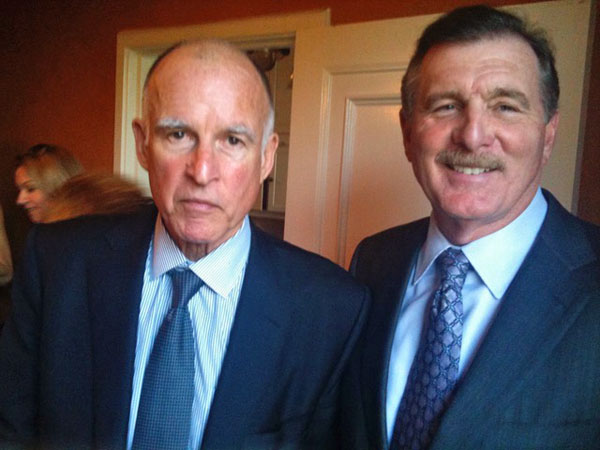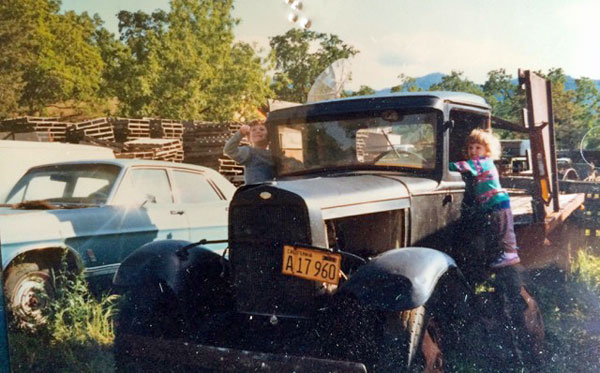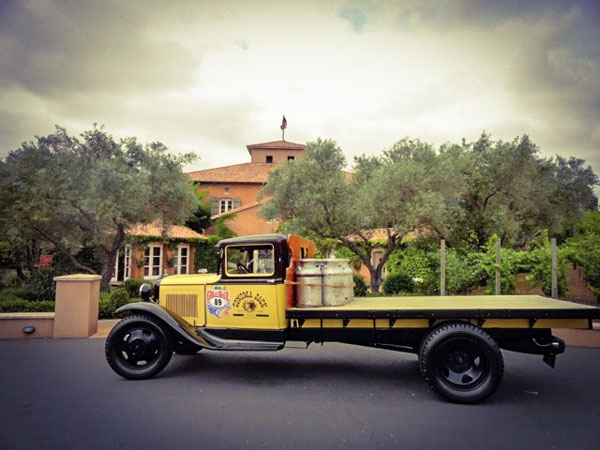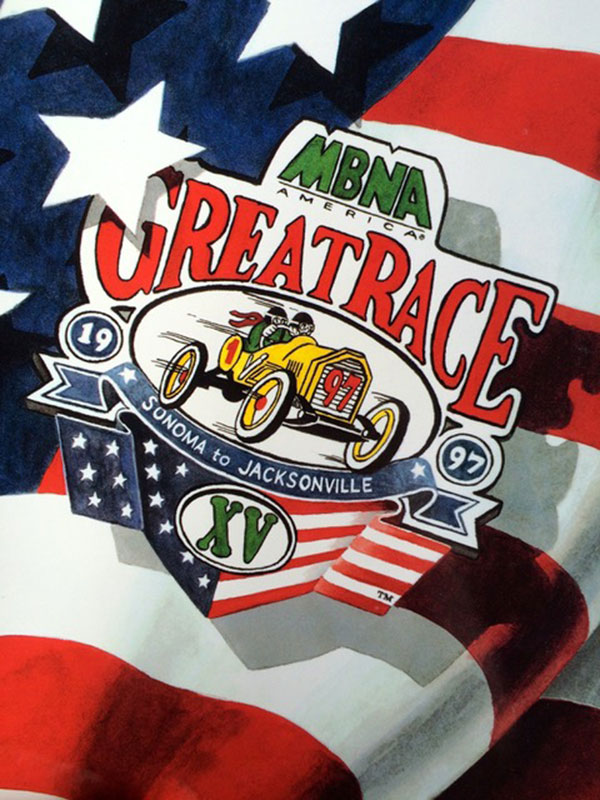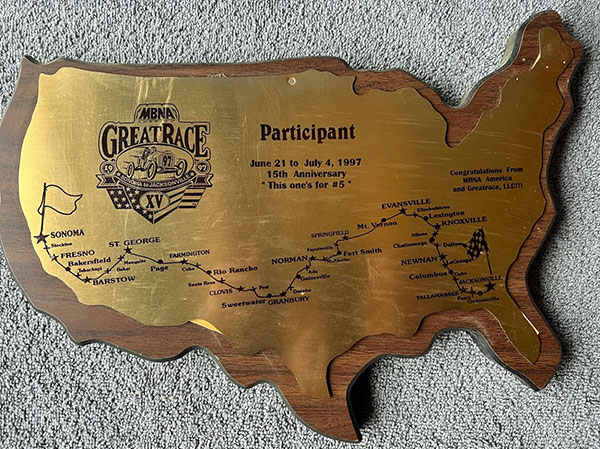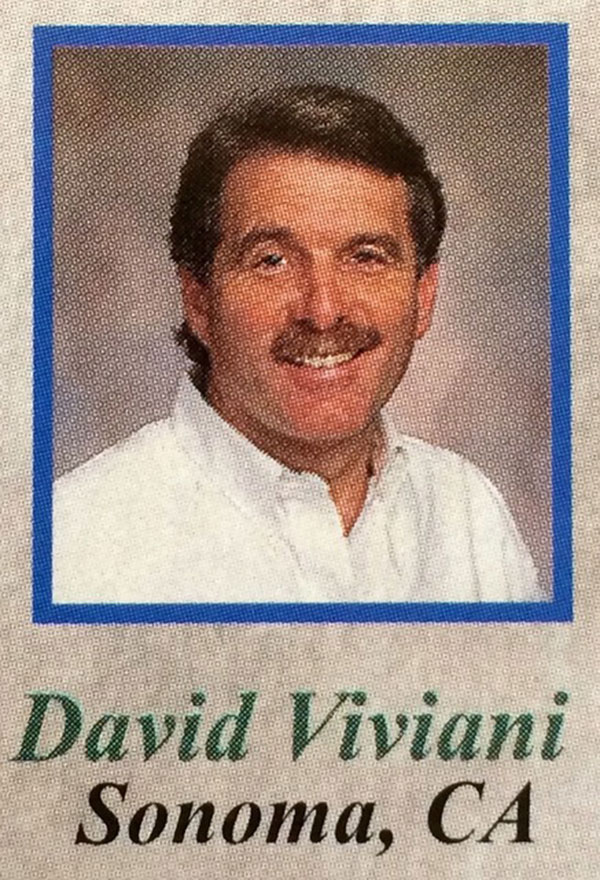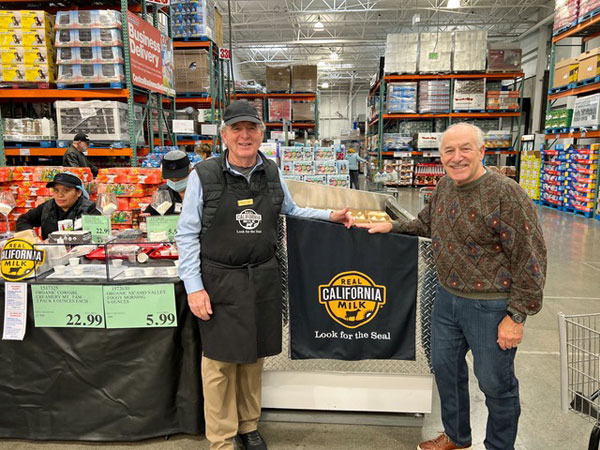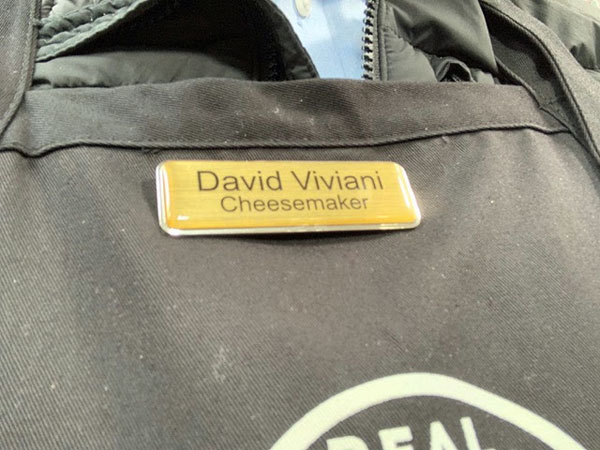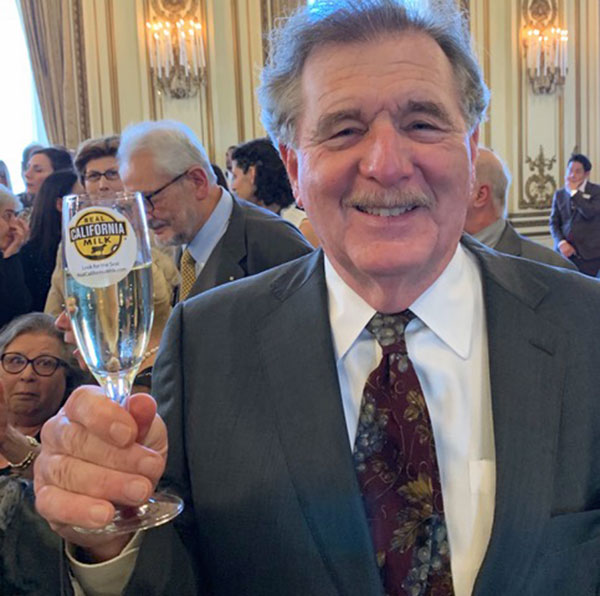
David Viviani at a reception for President Sergio Mattarella of Italy, at San Francisco’s Fairmont Hotel. He was honored to shake the hand of the President.
As always, it’s an honor to interview a celebrity in the world of cheese – especially when the celebrity is as kind and gracious as David Viviani. He and his family played a part in elevating the state of California to second place in cheese production, behind only Wisconsin.
During the course of this interview, one of the qualities we found most endearing about David was his respect for the past and for his remarkable family of origin. Indeed, it was difficult to keep the focus of this interview on himself – a somewhat rare and refreshing form of humility.
A Big Life
David spent his entire life in the cheese business. Now, through his business, Viviani Marketing, he works with the California Milk Advisory Board (and with other organizations) to promote California cheesemakers.
On the home page of his website, he offers to help cheesemakers bring their product from “The Cow to the Counter to the Cashier.”
It would be impossible to enumerate his many achievements, but among them –
- He was President of the California Cheese & Butter Association and the Dairy Council of California.
- He served on the California Creamery Operators Association board for 20 years.
- He was inducted into the California Cheese & Butter Association Hall of Fame and was given “Lifetime Achievement” recognition in 2011.
- He was presented with “Big Cheese” recognitions by both the Northern and the Southern California Dairy Councils.
- He served in leadership positions in numerous industry-related Councils, Associations, Committees and Grand Jury (he served on the Sonoma County Civil Grand Jury for a year (1978).
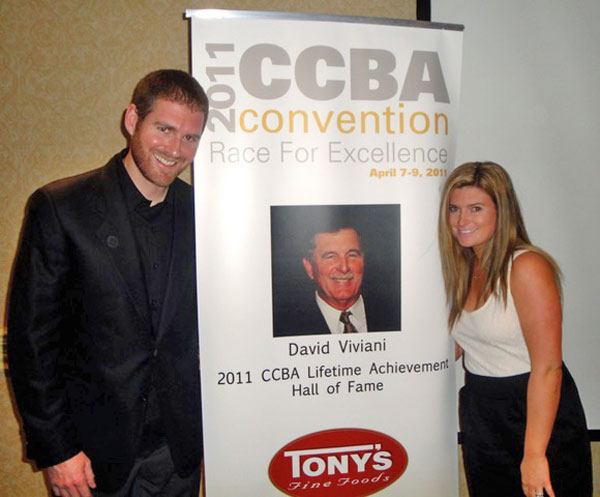
David’s son, Peter and his daughter, Chelsea at their father’s induction into the CA Cheese & Butter Association Hall of Fame
In the photo below, at 35, he is shown giving George H. W. Bush (then Vice President) a gift of cheese when he was a Fellow in the California Agricultural Leadership Foundation’s 2 year program.
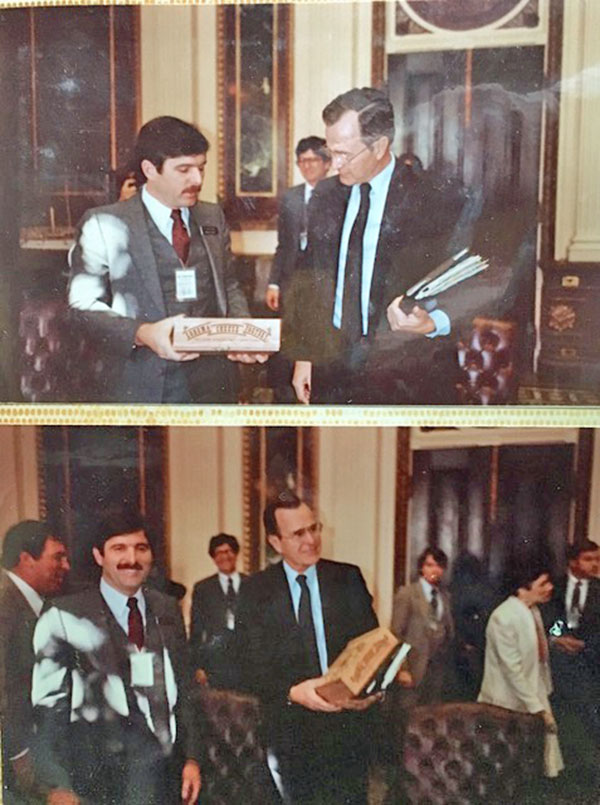
David told us that Vice President Bush was very gracious and later Barbara Bush sent him a kind thank-you note.
His Roots
David is a third generation cheesemaker whose grandfather, Celso and Celso’s partner, Tom Vella founded the Sonoma Valley Cheese Factory in 1931.
Celso and his older brother, Ulderigo and his younger brother Silvio, had worked in the local Sonoma quarry, cutting cobblestones to help rebuild San Francisco after the 1906 earthquake, and at Samuel Sebastiani’s winery. But, in response to Prohibition in 1919, they learned to make cheese at Joe Vella’s Sonoma Mission Creamery on First Street East.
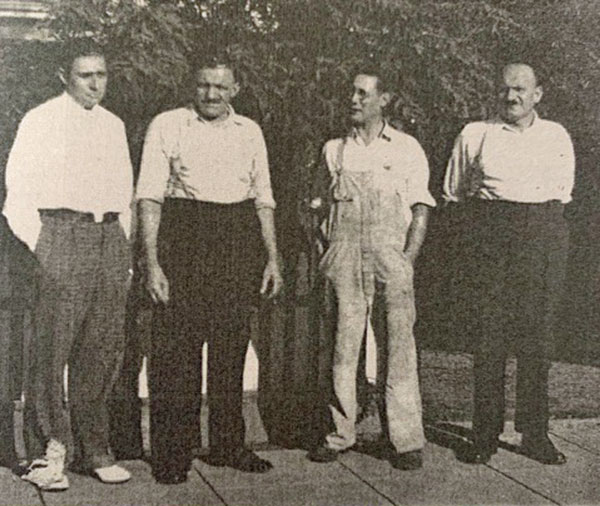
Celso with his son, partner and brother (1936). Dino Viviani, Celso, Tom Vella and Silvio Viviani in Sonoma
By 1931, the Viviani brothers and Joe Vella’s brother, Tom had become partners in The Sonoma Cheese Factory (now Sonoma Creamery). The original location of the Factory became the Vella Cheese Company where it remains today on Second St. East.
In 1945, the partners moved the Sonoma Cheese Factory to Sonoma’s Plaza while owning and operating a cheese plant in Marin County and two more plants in Oregon.
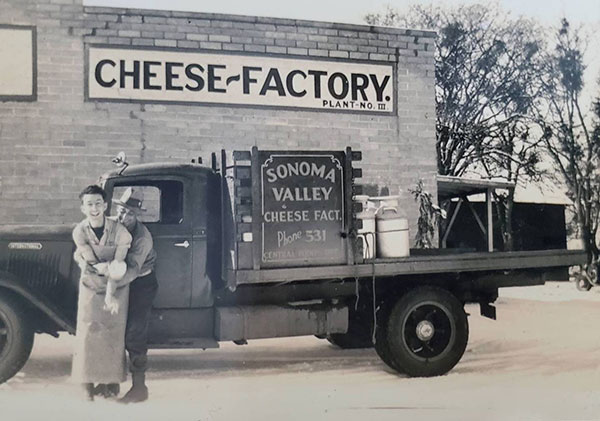
In 1935, Tom Vella (left) and Celso purchased the Rogue River Valley Co-op and renamed it the Sonoma Cheese factory, Plant No. III. In the 1950’s, Vella became the sole owner and he changed the name to Rogue River Valley Creamery (now the Rogue Creamery). Recently, Rogue River Blue was served to French President, Emmanuel Macron at a White House dinner.
His Early Years
David grew up in the cheese business.
When he was 6, his grandfather gave him a Ritz cracker with his Oregon Blue cheese. This inoculated David’s passion for cheese. (He LOVED it!)
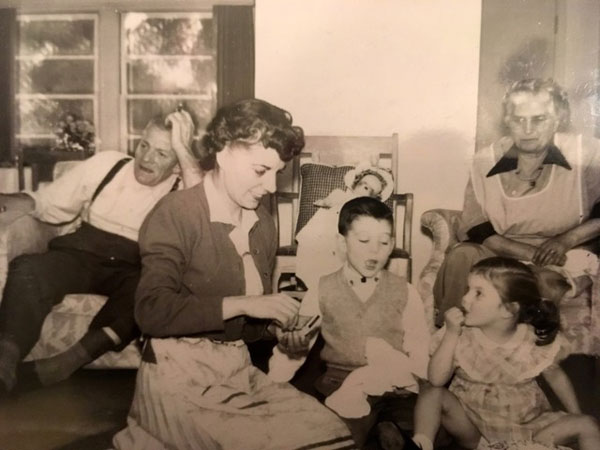
Christmas with Grandfather Celso, his stepdaughter Mimi, David and sister Donna and Celso’s second wife, Emma. David’s grandmother, Maria, passed while his father was serving in the South Pacific.
Celso, passed in 1955 when David was 8. David’s father, Pete had bought the business from Celso in 1953. Pete included David in every aspect of the business.

Pete Viviani in front of the Sonoma Cheese Factory with his dog Teddy and his 1950 Chevy which he had bought new. David still has the car.
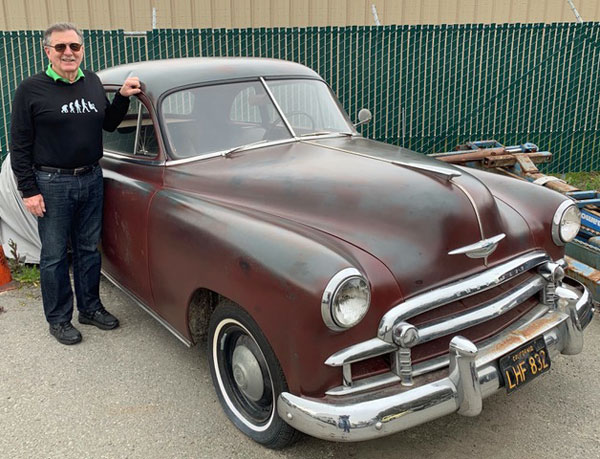
David with his father’s stock car, which is now 72 years old. It’s a “survivor car” with every original nut and bolt from the factory.
David started working at the Cheese Factory while still in grammar school and, later, while attending Sonoma Valley High School, where both his parents had graduated.
He graduated from high school in 1965 (where he earned 11 sports letters). 3 years later, when he was 21, he became president of the company(!)
This seems remarkable, but, he told us that, at the time, it seemed almost organic.
The Sonoma Cheese Factory in the 1960’s had hit hard times. Small cheese companies couldn’t compete with the big co-ops. David’s father had stopped making cheese and had sold off the equipment. Only the company’s small retail store remained in the front of the building with modest sales and two employees.
Pete and David’s mother moved to Merida, on the Yucatan Peninsula in Mexico, where his father took a position building and managing a milk and cheese plant. He had a 3 year contract.
After high school, David graduated from the local junior college, but, due to his work commitment, could not transfer to a 4 year college.
In 1966, in his second year of college, he had enlisted in the US Air Force Reserves and was activated in 1968 for 2 years. (He told us his son once asked him if he was involved in any action. He answered that possibly he was involved in “friendly fire,” via food poisoning, because he was a cook.)
The Hamilton Army Airfield was in nearby Marin County and David commuted there from Sonoma.
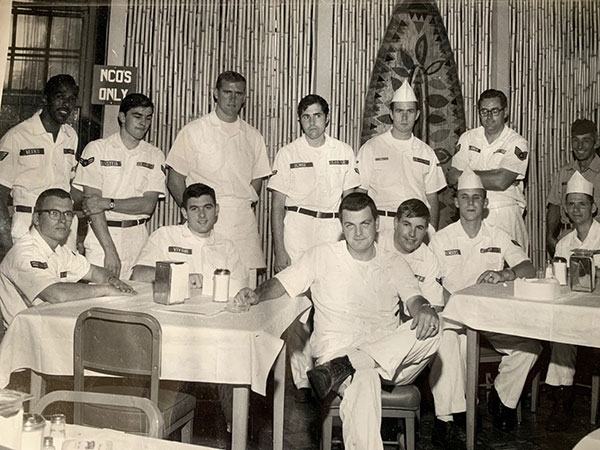
US Air Force NorCal Hamilton Airfield’s Food Service Team (1968). David is seated second from the left.
The Family Business
After serving his time in the Air Force, David became partners with his college friend, Fred Harland (who later became his brother-in-law), and they started their quest to expand the business.
With his father out of the country, it made sense for David to become the corporation’s president and Fred the secretary/treasurer.
They added features to the store and it evolved into an Italian Deli with more offerings – foods, picnic items, sandwiches, beverages, coffees, wines and beer.
They created an outdoor patio (shown at right in the picture below). They also added a lunch concession at the local Sonoma Valley High School.
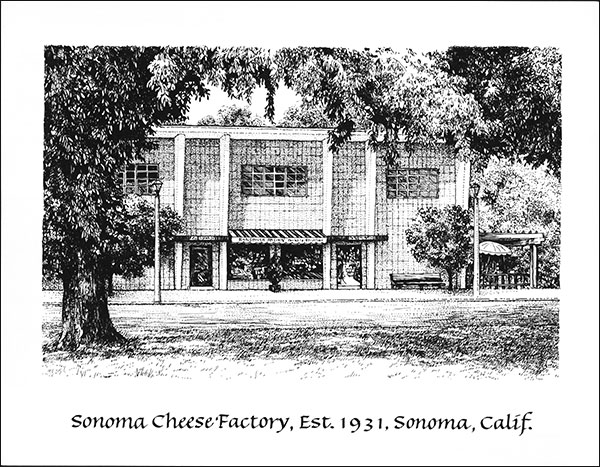
Artist depiction in 1970 from the Sonoma County Library Special Collections
They bought a 300 gallon cheese vat and started making Monterey Jack cheese, as David had cheesemaking training from his years growing up in the plant.
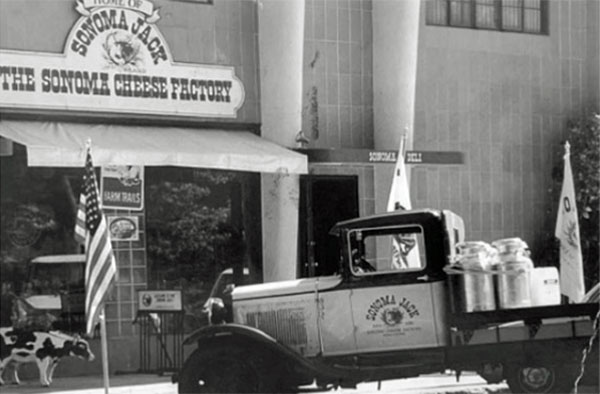
Photo from the Sonoma Historian, 2019, shown at David’s website, Viviani Marketing.
Their process: They used Jersey raw milk which was brought in from local dairies. It was pasteurized (for 15 seconds at 162F), then cooled to 82F to start the cheesemaking process. Cultures and enzymes were added to set the vat and the curds were cut with Swiss harps. The curds were gently cooked to 100F, then the whey was drained off (and shipped to local dairymen for their cows). The curds were then rinsed with well water, the water was drained and the salt and spices were added. The curds were rolled into 3lb and 10lb wheels by using muslim cheese cloth or formed into 40lb blocks and aged for at least 3-4 weeks.
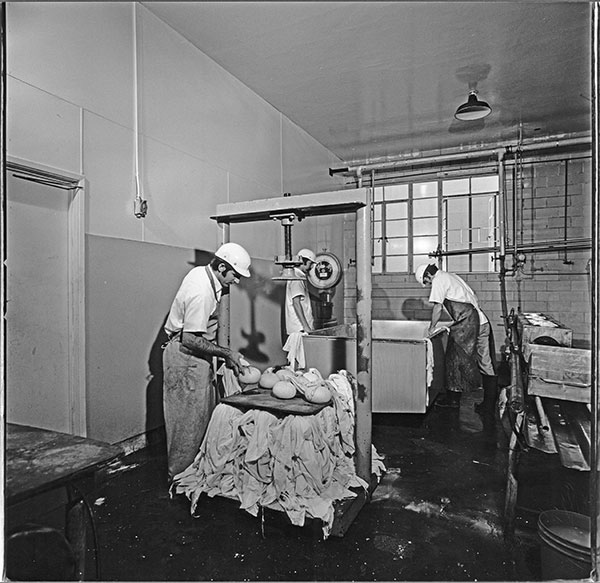
Salting the curds (in back) and rolling the wheels in muslin in 1972. From The Sonoma County Public Library Special Collections. Photo by Don Meachan.
The wheels had a slightly higher moisture content and gave the consumers a better mouth feel and texture than food service-style Jack cheese.
Celso’s recipe for Monterey cheese was creamy and mellow (because they rolled the wheels). But, David thought it wasn’t right to call it Monterey cheese when they made it in Sonoma, not in Monterey, California. So, they decided to name it and brand it as Sonoma Jack. It was always their best seller.
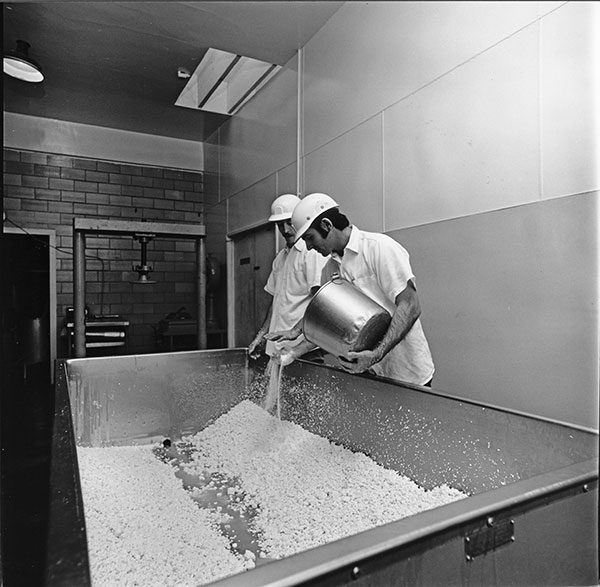
1972. Salting the curds (2 pounds of salt for every 100 pounds of curds) in 1972. From The Sonoma County Public Library Special Collections. Photo by Don Meachan.
Expanding the Business
When his father had completed his 3 year contract in Mexico and returned to Sonoma, he became the chief operations officer, heading-up the growing cheese making business. He loved making cheese!
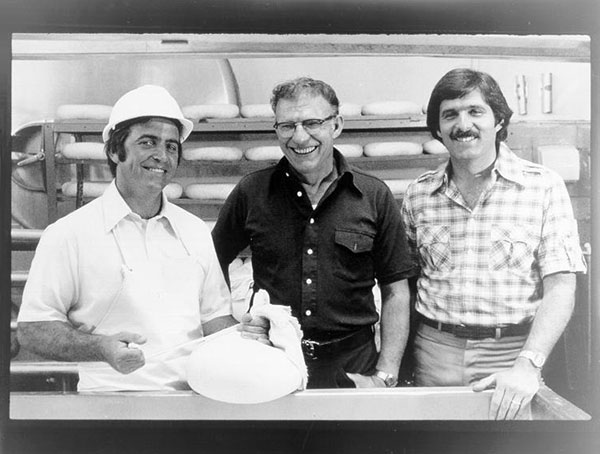
Fred, Pete and David in 1978. From The Sonoma County Public Library Special Collections. Photo by Don Meachan.
The partners roles: David tried to sell more cheese than his father could make, and his father tried to make more cheese than what David could sell. Fred counted the money.
The business continued to grow, fueled, in part by the oil embargo of 1973-74. Bay area residents needed to restrict their driving to day trips and they basically “discovered” the beauty of the “Sonoma Wine & Cheese Country.” The Sonoma Valley became a popular tourist destination.
When his father had returned from Mexico and was making the cheese, David had become the retail manager of the business. In his early thirties, when he “couldn’t stand to make one more ham & cheese sandwich,” he began to develop a sales and marketing plan to grow the company (statewide and nationally).
David was already involved in local organizations (like the Chamber of Commerce), but he needed to get connected on a broader level. He joined trade associations and he was able to meet the buyers he needed to know.
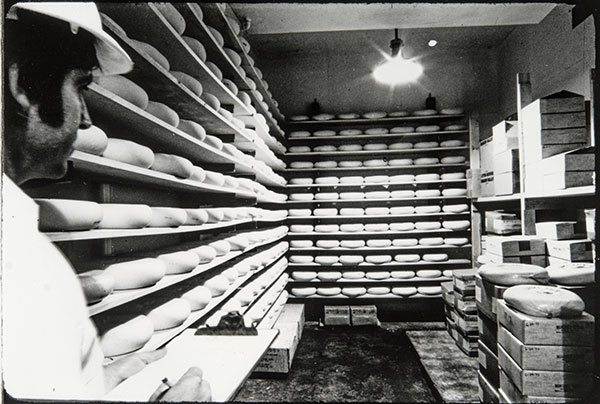
The cave in 1978. That’s Fred on the left, counting the inventory. From The Sonoma County Public Library Special Collections. Photo by Don Meachan.
More and More Expansion
In 1981, when he was 34, David and his father celebrated the 50th anniversary of the company by creating and marketing the first “Hot Pepper Jack” cheese.
David had noticed the cheese crew at lunch in the factory holding hot peppers in one hand and Jack cheese in the other in order to eat them together. He thought, “Why not add the hot peppers directly to the cheese curds when we salted them and blend them together?”
This was soon followed with yearly additions to the flavor profiles – Sonoma Garlic, Habanaro, Pesto, Mediterranean, Vidalia Onion, Salsa, Chili Cheddar, etcetera. (David told us “They drew the line at Jack & Dill – that went over the hill.”) Along the way, they changed the name of what everyone called plain Jack to Traditional Jack.
This and other flavors they developed added value to their Sonoma branded cheeses and fueled their growth.
A few years after they began selling Sonoma Pepper Jack, David became a charter member of the American Cheese Society when it was first founded (in 1983). The annual dues were $10(!)
The founder of New England Cheesemaking Supply Company, Ricki Carroll (The Cheese Queen) was also there at the beginning of the ACS. She told us she remembers visiting the Sonoma Cheese Factory around that time. It was already contributing to the rise of the California cheese culture.
David was basically helping to develop Sonoma Valley agri-tourism. He started events to benefit non-profits which he called “Cause Marketing Event Programs.” They included a “Hit the Road Jack” 10K run which benefitted the Boys and Girls Club and Hospice. It started and finished at the Factory and the run went through local vineyards.
In his role as marketer of the Cheese Factory, David became a disciple of Sonoma’s August Sebastiani and Napa’s Robert Mandavi and would ask himself – how would they sell cheese? He is grateful to have had them as mentors.
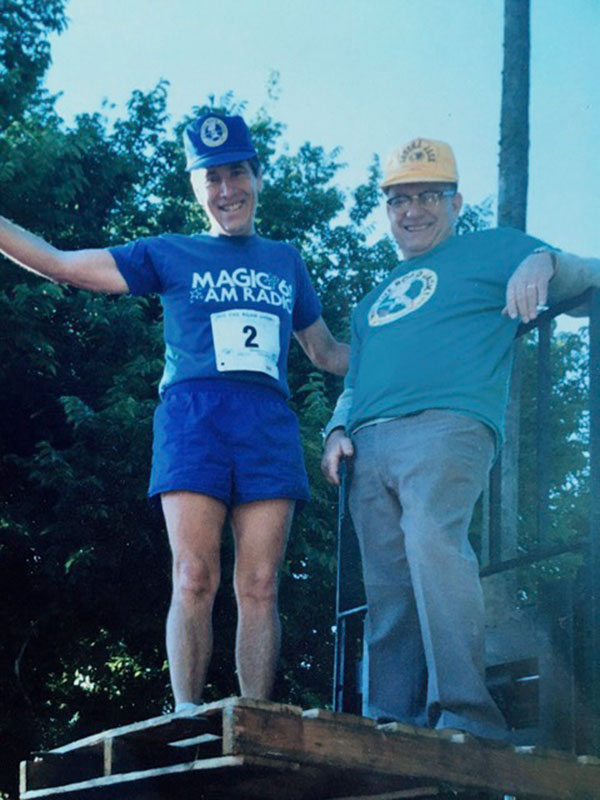
Their first “Hit the Road Jack” 10 & 5 K Run in 1986. At the starting line was Carter B. Smith, well-known SF Bay Area radio personality. He and David’s father were the officials.
Their “Sonoma Jack Invitational Golf Tournament” benefitted Sonoma State University.
They established the first Sonoma County wine tasting bar and they added an outside Bar-B-Q where they sold Big Jack Burgers. (Customers picked the flavor of Jack cheese and the burgers were cooked to order with toasted buns.)
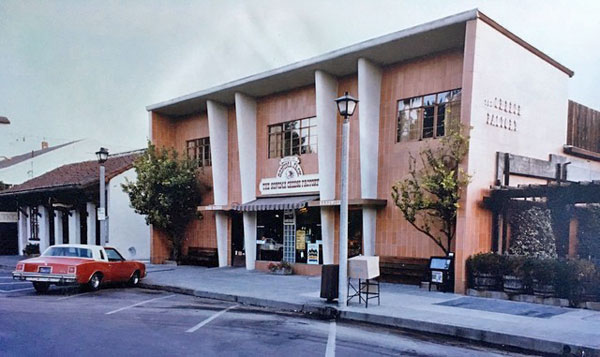
The wooden structure at right was the Bar-B-Q patio. Between it and the store, the business seated over 100.
By 1984, when David was 34, they were producing and distributing over 10,000 pounds of cheese per day and 1/2 million people were visiting the store every year! The Cheese Factory became the number one tourist attraction in the county.
They had a viewing window where people could watch the cheese being made and a 5 minute “Cow to Counter” slide show with it.
They developed a mail order program and all the wrapping paper and labels were branded with their logo. At Christmas, the bull in their logo wore a wreath around his neck.
The business continued to grow and as David told us, “We became part of the birth of California’s “Wine & Cheese Country. We had a great run and good time.”

When David Letterman brought his show to San Francisco for a week, in 1996, they created this label and placed it on a 10lb wheel of their cheese. He used it in the advance promotions for the show.
Among the many awards they received, they were the first cheese, west of the Mississippi, to win a gold medal in the Wisconsin National Cheese Competition.
They were also the first to present California’s native Monterey (Sonoma) Jack cheese at the SIAL PARIS International Food Expo in 2000. Some of the French attendees were offended that they put condiments in their cheese. (David realized that when it comes to cheese, the French don’t know Jack!)
A Good Life
Meanwhile, David and Linda, his first wife had 2 children – Peter and Chelsea.
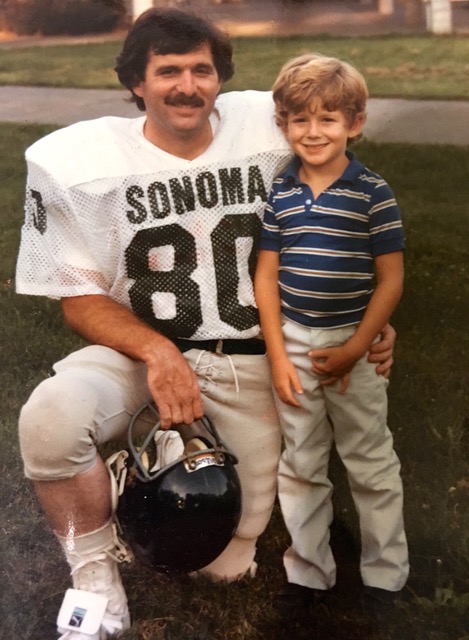
With his son Peter (5) in 1985 while playing in a Sonoma Valley High School Alum Football fund raising game, 20 years after he graduated.
When Peter was 8 and Chelsea was 3, David purchased a 1931 Ford AA truck and then had it restored over a 3 year period.
In 1997, when David was 50, he and his 17 year old son, Peter entered the truck in America’s Great Race – 5,200 miles (direct route is 2,000 miles) from Sonoma, CA to Jacksonville, FL.
It was a road rally with 100 of all kinds of vehicles built before 1950. The drive took 14 days and they averaged 400 miles a day in the summer heat to be in the Jacksonville 4th of July Parade.
The 1931 AA Ford truck averaged 22 mph. It was a very special experience for David and his son to see and visit countless small towns along America’s back roads.
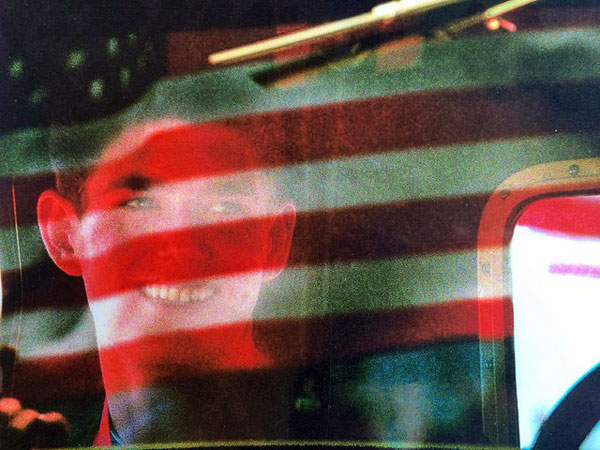
Peter Viviani. As it happened, the American Flag was reflecting on the truck windshield. They were just departing Sonoma in the middle of June on the Great Race to Jacksonville. The back bumper of the truck had a custom sign. “JACKsonville or Bust!”
In 2019, he and his daughter and her two children, Madison & Sophia received their Italian citizenships. They are very proud of both their Italian and their American heritage.
Today
David runs a cheese consulting business, Viviani Marketing because, as he told us, he still has curds & whey in his veins.
His company has a non-exclusive contract with the California Milk Advisory Board for promotional activities for California cheesemakers and other projects.
His role is to manage dozens of Costco Roadshows in CA to promote California milk in the form of CA made cheeses. He told us he dresses the part and has a name tag with his name, plus “Cheesemaker.”
This provides him with some creditability when speaking with the Costco members about the benefits of cheese, styles, flavors, uses, etc., all of which often leads to a sale.
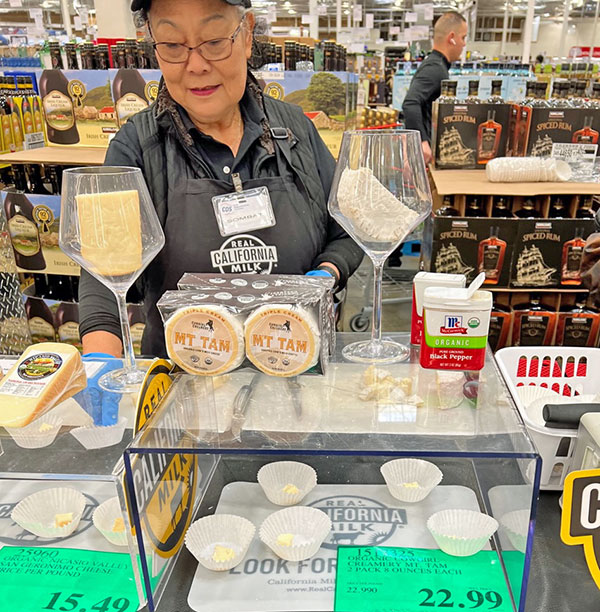
David puts samples of cheese in wine glasses so the customers can pick up the glasses and smell the cheese.
Sometimes, he tells members that he is a “cheese therapist,” which seems to work as it is leads to a more friendly interchange.
Sometimes, to add to his creditability, he informs them that Pepper Jack cheese was first made due to his work in 1981. They often let him know it is their favorite, go-to cheese. They are surprised, delighted, and thank him.
It’s hard for us to imagine that David would need to establish his credibility! At his website, there is a glowing endorsement by Don Sebastiani. He mentions that David has more knowledge about making cheese than you would ever expect. (We wouldn’t expect it to be any other whey.)
We had a lot of fun with David and we want to share a video he sent us. It’s apropos of absolutely nothing but there is a bull in it and the Sonoma Jack logo has a bull in it as well:
André Rieu and his Johann Strauss Orchestra performing España Cani live in Maastricht (Netherlands):
Viviani Marketing
vivianimarketing.com
707.484.8171
david@vivianimarketing.com
1517 North Point Street Suite 449, San Francisco CA

